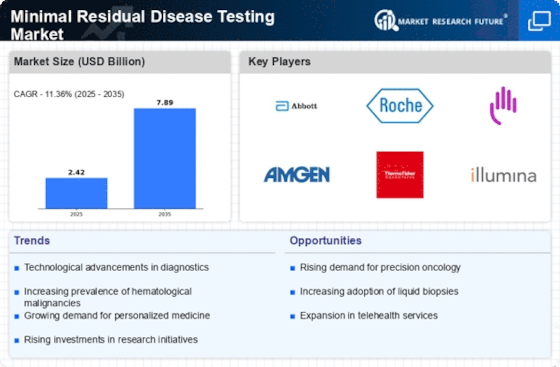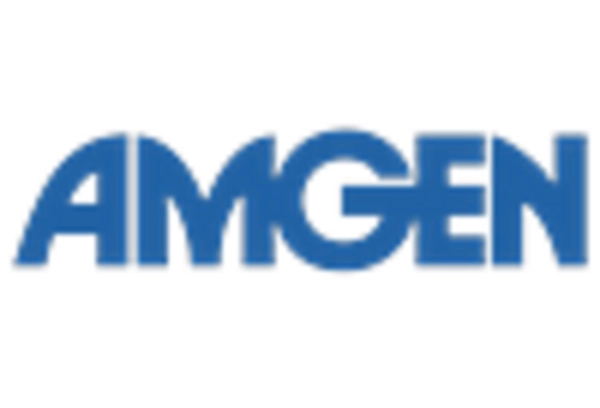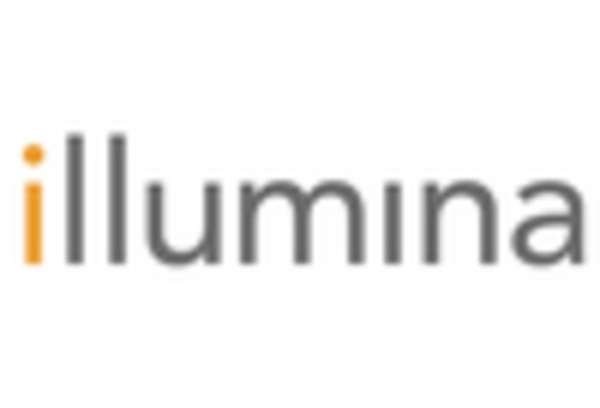Market Share
Minimal Residual Disease Testing Market Share Analysis
The Minimal Residual Disease (MRD) Testing Market is experiencing substantial growth driven by advancements in cancer diagnostics, increasing awareness of precision medicine, and the growing demand for personalized treatment strategies. MRD testing plays a crucial role in cancer management by detecting residual cancer cells that may remain after initial treatment, helping clinicians assess treatment response and make informed decisions for further intervention. A prominent trend that we can witness for that market is the incorporation of mutation negative tumor DNA (NGS) and other advanced molecular methods as a way of quantification of mRD cells. In effect, these high-tech methods achieve their purpose in detecting small amounts of residual disease which sets a ground for close follow-up of the patients and the disease fare of the treatment.
Furthermore, expectations are about the increase in use of MRD tests as a tool in routine clinical care for different types of cancers. With the maturing of the concept that MRD test results can be used as the indicator of disease recurrence and guides treatment, clinicians start to apply the technique in routine cancer protocols properly. This trend mirrors a broader transition that more and more often results in the patient-tailored individual cancer therapy, where the MRD testing is contributing to advanced knowledge about patient’s needs.
There are also trends in MRD assessment methods being standardize and in the creation of unified guidelines. Shared effort of numerous healthcare organizations, regulatory bodies and partner companies’ industry is aimed at the development of universally accepted procedure for MRD tests which provides the general accuracy and reliable of results across all the laboratory and healthcare systems. Standardization of these testing methods helps MRD testing in the clinical sphere to be more effective, which,in turn, makes it possible to easily implement it in routine oncology practice.
The market observes that the increasing importance of MRD testing in the immunotherapy and targeted therapies context is producing its shifts. Evaluation of MRD is now essentially a part of drug resistance checking in advanced cases, including auto-immune therapies and targeting agents. An important role of MRD testing comes in to light here, wherein although it can detect the very early signs of treatment resistance and help adjust therapy this becomes increasingly pertinent in an era of 'cell therapy' where treatments are tailored specifically to individual patient characteristics.
With this MRD testing being also adopted by the non-hematological malignancies like the solid tumors, the drug development is becoming more challenging and there is the emergence of the marine-based therapies, thus bringing a revolution in oncological care. MRD testing is being accessed as an alternate source of treatment in a number of solid tumour types including breast cancer, lung cancer and colorectal cancer. This enlargement indicates that MRD can be useful not only for disease progression or remission evaluation in one type of cancer but can also be used crosswise on other cancer types as a prognostic and predictive parameter.


















Leave a Comment